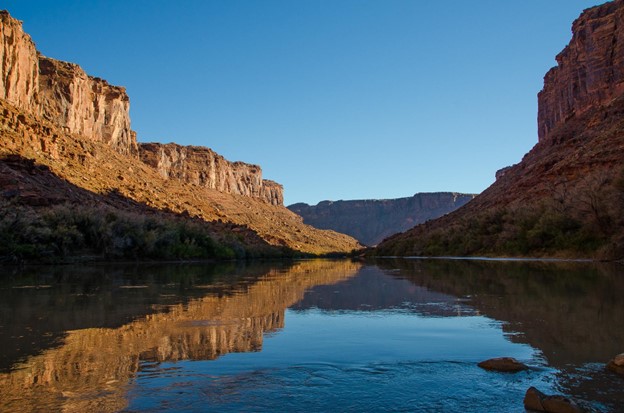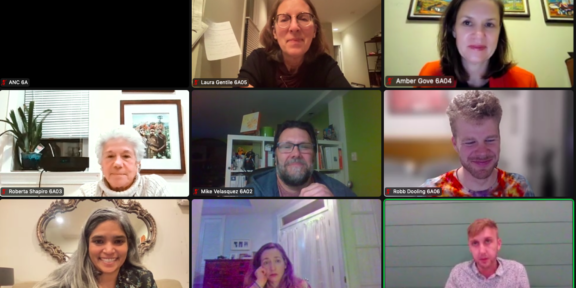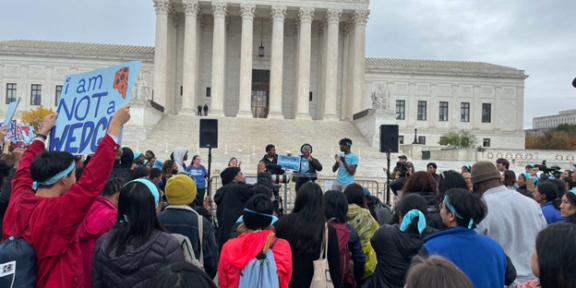By Badi Cross
Howard University News Service
The Navajo Nation has been fighting for the federal government’s aid in securing enough water allocation from the Colorado River in order to be self-sufficient. In what began as a lawsuit in 2003, the Navajo Nation argued that the U.S. Department of the Interior had not done its duty in protecting enough of the river’s water for the Navajo Nation’s needs. Now, the U.S. Supreme Court will hear arguments on March 20, in a decision that will have a lasting impact if ruled in favor of the Navajo Nation.
The new court hearings (Navajo Nation v. Arizona and Navajo Nation v. Department of Interior) stem from the 2003 lawsuit arguing that the interior department had breached the Nation’s water rights established in the 1908 Winters v. United States case. The Winters case clarified that Native American reservations reserve the right to water access as a means of supporting and maintaining their self-sufficiency.
The Nation’s 2003 suit argued that the government had gone against this case by creating guidelines for determining water shortages and surpluses in 2001. The courts originally dismissed the suits, because they held that the Nation did not have standing to sue the federal government due to sovereign immunity. However, after the Nation amended its complaint multiple times, the 9th Circuit Court eventually allowed the breach of trust claim to be filed in 2021.
The main question being reviewed by the Supreme Court is whether the 9th Circuit Court’s ruling, which allowed the Nation to enjoin the Secretary of Interior to “develop a plan to meet the Nation’s water needs and manage the mainstream of the Lower Basin Colorado River (LBCR) so as not to interfere with that plan,” interfered with the Court’s exclusive jurisdiction over the water.
This question is important because if the 9th Circuit Court’s ruling is upheld, then the federal government would be held responsible for making sure that the Navajo Nation’s water needs are met, along with factoring the Nation into whatever decisions are made over the water to protect their needs.
Rita Pearson Maguire, the lead counsel for the challengers of the case, argued that “the federal treaties with the Navajo Nation do not address water at all,” and that the implied rights that are given from the Winters case do not justify the fiduciary duty that’s being asked of the government.
The 9th Circuit Court’s argument was that the 175 years of treaties and court decisions make protection of the Nation’s water rights an “irreversible and dramatically important trust duty.”
Isaac Vergun, a junior at Howard University and a climate and environmental activist, has been following the case since the 9th Circuit Court’s reversal of the case’s dismissal.
Vergun believes that the Department of Interior is trying to divert any responsibility by arguing that the Court is the only one with jurisdiction over the water. He also stated his belief that the previous cases that have surrounded the water rights of reservations set a more than sufficient precedent for the Navajo Nation’s claim.
“The Navajo Nation has brought up a legitimate case on arguable grounds against the Department of the Interior for their water rights being protected,” Vergun said. “The Navajo Nation deserves equal access to water, especially if the water is on federal lands.”
While a Supreme Court reversal of the 9th Circuit Court’s decision would be a major blow to the Nation’s appeal, this also case presents a rare opportunity for the rights of Native Americans across the United States to be expanded.
While this specific case will benefit the Navajo Nation, the effects of a decision in their favor would create a new precedent for the other Native American tribes that are located near the Colorado River to have their water rights protected. With the country’s water resources declining steadily, the protection of water rights for these reservations would aid in making sure that they can still survive.
Badi Cross is a reporter for HUNewsService.com. He plans to continue covering the cases after the hearing on March 20.

















